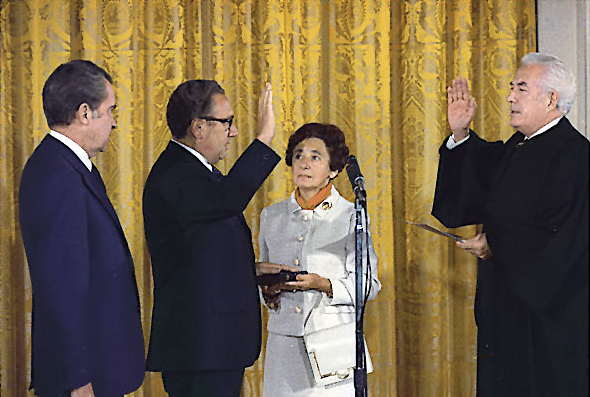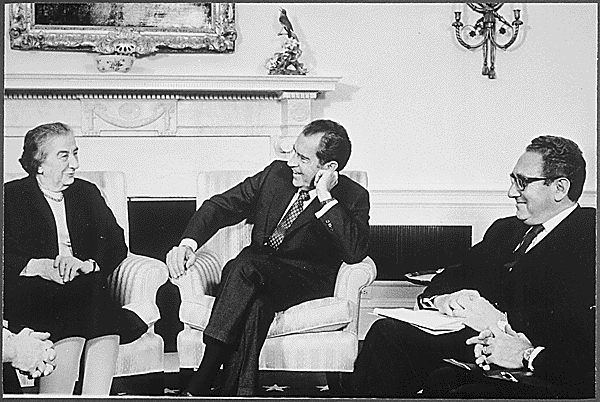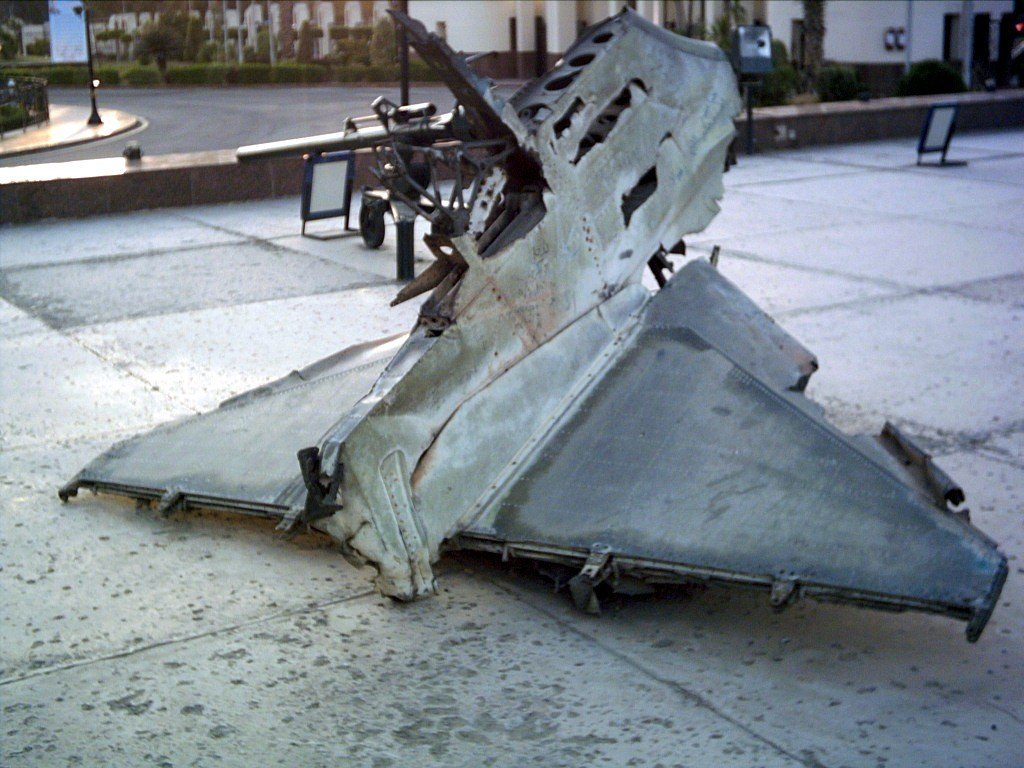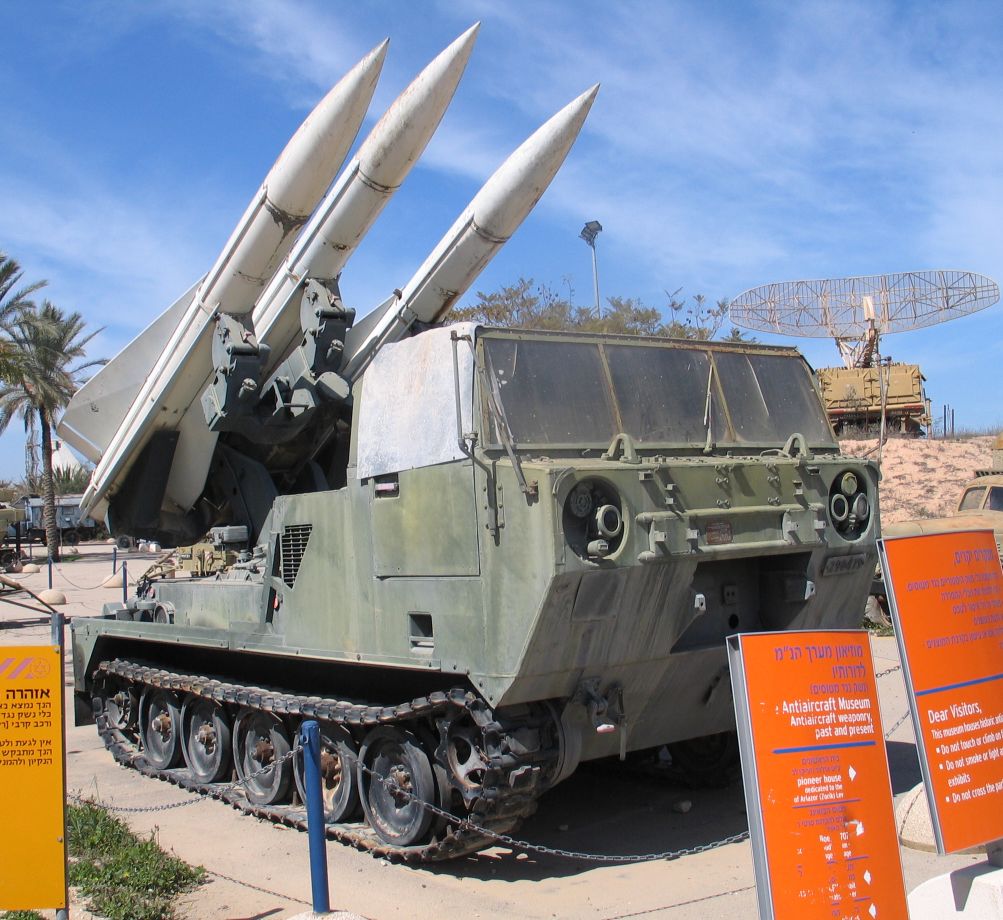As the American establishment headed by the Democratic Party is turning away from democratic and Judeo-Christian values, Israel is looking elsewhere.

Copyright: Billy Hathorn at English Wikipedia [CC BY-SA 3.0 (https://creativecommons.org/licenses/by-sa/3.0) or GFDL (http://www.gnu.org/copyleft/fdl.html)]
It has become axiomatic in the last half century or so that the close relationship between the US and Israel is based on common values. Israel is, after all, the only representative democracy in the Middle East. And then there are those “Judeo-Christian” values. There is even a segment of the American population, the Evangelicals, whose embrace of Israel makes Israelis who are in the know both appreciative and apprehensive because we suspect that the Evangelicals love for us is designed to bring about the End of Days, and event that in their own eschatology does not bode well for us. There is only one problem with all this talk about the unshakable foundation of American-Israeli relations based as they are on shared values and similar worldviews and it’s a big one: it is simply not true. Prior to the 1967 Six Day War, a war in which Israel proved itself to be sufficiently powerful and cunning to survive in the Middle East, Israel was already the only democracy there. It was also no less “Judeo-Christian”. And yet, the United States offered Israel very little support for the first two decades of its existence. The Six Day War was won with second hand British tanks and Czech rifles and locally produced Uzi’s and French Mystere jets. There were no American weaponry found in IDF emergency depots. The Israeli nuclear project was seeded with a French reactor, not an American one.

Copyright: brewbooks from near Seattle, USA [CC BY-SA 2.0 (https://creativecommons.org/licenses/by-sa/2.0)], via Wikimedia Commons
No, it is time to dispense with the smooth talk and platitudes that are the daily bread of politicians and look at the history of the American-Israeli relations as it really is: a history of hard-nosed decisions taken by each country in its own perceived interests exclusively. After the Six Day War, the US began to see in Israel a potential ally in its global shoving match with the Soviet Union better known as the Cold War. Even then, Israel was not America’s first choice, far from it. America’s first choice for Middle Eastern allies were Egypt and Syria, which were neither democratic nor in any conceivable way Judeo-Christian. It was only after these countries decided to pursue an alliance with Russia, probably because of their less than pleasant history with Western colonial powers like Britain and France, but primarily because they were worried that American support came with inconvenient talk about “democratization” and “human rights”. This left America with Israel as its second and only choice for a Middle Eastern ally. There are many examples of America’s partial and reluctant support for Israel during the years in which it was still struggling for its very existence, but the most glaring one is what happened in the run-up to the 1973 Yom Kippur war. In the summer and into the fall of that year Israel had plenty of indisputable intelligence that Egypt and Syria were gearing for a major war. Israeli PM at that time, Golda Meir, an Eastern European Jew who grew up in Cincinnati and knew America well, begged the Nixon administration to allow her to call up reserves as such a call up would have likely chilled the Arab’s ardor for a military engagement. But Henry Kissinger, Nixon’s Jewish Secretary of State had other ideas. A ruthless political operative who could have been the ideological offspring of Niccolo Machiavelli and Otto von Bismarck, Kissinger didn’t much like the newly imperial Israel with its ownership of the oil-rich Sinai Peninsula. He correctly foresaw that the main oil-producing Arab nations that controlled OPEC were about ready to use their dominance of the oil markets as a weapon against the US should it be too unbridled in its support for Israel and he knew full well that the typical American household, with two V8’s in every garage, would not take kindly to skyrocketing gas prices. Earlier that year, Kissinger negotiated the Paris Accords ending the war in Vietnam, but he was fully aware that the North Vietnamese were not abiding by a single one of their provisions and that the final fall of South Vietnam was imminent. The Soviets were still winning the space race and political situation at home in America was tenuous at best. The last thing Kissinger wanted, the last thing he thought the US needed was another brilliant Israeli victory in the mold of the Six day War only six years earlier.

Copyright: http://www.nara.gov [Public domain], via Wikimedia Commons
So Nixon, acting on Kisinger’s counsel, forbade Israel in no uncertain terms the call up of its reserves, leaving it with the two unpalatable choices of either flouting the will of its only major ally and risking the cessation of American political, economic, and military support, or refraining from reserve call up and leaving itself open to a surprise attack by Egypt and Syria with only its tiny standing army spread thin across the vast Sinai desert and the Golan Heights to try and absorb the initial Arab onslaught. From these two evils, Golda chose the latter. When the Arab’s did attack on the Day of Atonement, not one of the Israeli lines held. Desperately fighting, often to the death, with their ammunition exhausted, Israeli outposts manned by young regular troops fell one by one as Egyptian armored columns were making their way deep into the Sinai Peninsula while their Syrian counterparts were progressing towards the Sea of Galilee and the Jewish towns and villages that dotted its shores. Reserve troops, upon arriving at the emergency equipment depots found them in a state of disarray and neglect with tanks that wouldn’t start and rusty rifles. The mood in Jerusalem was dire. The Defense Minister, the legendary hero of the Six Day War, Moshe Dayan, was hysterical, reportedly muttering about the “fall of the Third Temple”. Frantic calls by Golda and Foreign Minister Abba Eban went unanswered. Israel was running out of every possible piece of materiel from artillery shells to ammo rounds, while its vaunted American-made F-4 Phantom jets were being shot down like turkeys by the Russian-made SA-2 surface to air missile batteries.

Copyright: Atkins, Oliver F., 1916-1977, Photographer (President Nixon’s Photographer) [Public domain], via Wikimedia Commons
And yet, Nixon and Kissinger bid their time; Kissinger was quite happy to let Israel be taken down a notch, perhaps to lose some of those territories it gained six years earlier, maybe become less intransigent and more open to peace talks with the Arabs. Plus, Saudi Arabia was already openly threatening an oil embargo should America intervene on behalf of Israel. It took Israel’s opening the doors of the silos of its nuclear-armed Jericho missiles in the foothills of Jerusalem, a move clearly visible to American spy satellites, to spur the US into action. Between the probability of atom bombs exploding in the skies above Cairo and Damascus prompting God knows what response from the Russians and the near certainty of an Arab oil embargo, Israel’s foresight in acquiring a nuclear arsenal played its intended role and now the US had to choose the lesser of two evils. It chose the embargo. An airlift of every possible military materiel from the US to Israel followed and with it a brilliant Israeli victory on both fronts. But the price was paid. Over ten thousand casualties including twenty-five hundred killed, nearly one percent of the total population. As the wounded were recuperating in hospitals, the aura of Israeli military invincibility lay in ruins and with it the reputation of American-made weaponry. Vodka glasses were raised in Moscow every time a Fantom was shot down; neither Israel nor America would want to repeat this experience ever again.

Copyright: LeCaire [Public domain], from Wikimedia Commons
The aftermath of the Yom Kippur war still shapes our world today. The failure by major Arab armies to overwhelm Israel on the battlefield even under the most advantageous opening scenario taught the Arabs that a full scale war of conquest was not the way to defeat the Jewish State and gave rise to the strategy of terror and economic disruption that we in the West are still experiencing today. There is not a dirty trick in the toolbox of global terrorists that was not invented by the “Palestinian” Arabs in the 1970’s. From hijackings and hostage takings, to attacks on schools, to the murder of diplomats on foreign soil, to slitting the throats of families in their sleep, to suicide bombings, the Arabs invented it all. American automotive industry, always late to game, did not retool to produce gas-efficient four-cylinder cars, opening the US market wide open to European and Japanese imports, forever losing its primacy in the domestic auto market. American military industrial complex was jolted into action by the poor performance of its best products, more than capably operated, against their Russian counterparts. Close military collaboration with Israel in weapon R&D as well as in battlefield tactics development followed. The recognition that another full out war was undesirable for both sides led to the historic peace treaty between Egypt and Israel, putting the first major crack in the wall of Arab resistance. Israel Defense Force learned from its mistakes; when the First Lebanon War broke out in June 1982, I was a young soldier in a HAWK surface to air missile battery. On the eve of the war, reservists showed up to reinforce us prior to our deployment into Lebanon. All had kit bags full of brand new equipment: uniforms, boots, M16’s magazines, boxes of 5.56 NATO ammo, battle rations, all in original plastic packaging, all spotless. We were ready.

An Israeli M727 mobile Hawk launcher. These systems were first delivered to Israel during the Yom Kippur War. I operated them in the early 1980’s.
Copyright: Bukvoed assumed (based on copyright claims). [GFDL (http://www.gnu.org/copyleft/fdl.html), CC-BY-SA-3.0 (http://creativecommons.org/licenses/by-sa/3.0/) or CC BY 2.5 (https://creativecommons.org/licenses/by/2.5)], via Wikimedia Commons
But the other lesson from 1973, the lesson in which the US came very close to sacrificing not only the lives of many Israelis (which it did), but also the existence of Israel itself on the altar of its perceived short-term interest is by far the most important, by far the most strategic lesson of that most traumatic of Israeli experiences, the Yom Kippur War. Israelis, unlike Americans, have a history that spans three millennia and we remember all of it. We remember how in the middle of the first millennium BC the tiny kingdom of Judah neglected to switch its allegiance from its long-time protector Egypt to the newly emerging and more powerful Babylon. “A cane of broken reeds” the prophet Jeremiah called Egypt, warning the Judean kings of the fate that awaited them should they rely on it still. They didn’t listen. Ruin and exile followed. In the first century BC, the young King Herod of Judea, astutely looking at the world power map of his time, saw that Rome was the next big thing and asked for its sponsorship and support. Rome obliged, but there were strings attached and these strings, in the shape of adhering to the post-Republican imperial Roman insistence upon the divinity of their emperors, became more like chains with each passing year. Destruction of the Second Temple, exile, and the name “Palestine” are all consequences of Roman “alliance”. In our own times, Israelis well remember how the West betrayed Czechoslovakia to the Nazis in 1939 and how the US abandoned its South Vietnamese allies in 1973.
The major aliyah (repatriation) of Soviet Jewry in the early 1970’s, a movement that was facilitated by American pressure on the Soviet Union as recounted in detail on these pages and of which my family and I were a part, brought to Israel much needed technical expertise, expertise that was immediately put to use developing in-house capabilities for many key components of military might, such as the Merkava main battle tanks. The evolution of warfare away from major clashes of armor and infantry and into the domains of counter-insurgency, asymmetric warfare by special forces, and finally cyber and remotely operated platforms played right into the wheelhouse of Israeli expertise. Size no longer mattered, technological prowess did. These developments evened the playing field between Israel and its larger partner. American military is quite enmeshed now with Israeli-developed technologies and tactics primarily in the special forces and intelligence gathering arenas. It is an excellent partnership that is highly beneficial to both sides. But, not unlike in the days of the anti-war movement of Vietnam vintage, a movement that very nearly brought a major superpower to its knees and caused it to lose the first major military engagement in its history, America is now turning away from its roots of free enterprise informed by the strong moral principles that are now called Judeo-Christian values. With next to no exceptions, American elites today, in business, in entertainment, in academia, and in technology are turning away from the values of self-reliance and individual freedom that made America into a global superpower. They actively denounce the moral guidance of both the Old Testament and the New and fight every day to circumvent both the letter and the spirit of the greatest document the Age of Enlightenment had ever produced – the American Constitution.
One of the two major American political parties, the one that enjoys the full and unconditional support of the American elites, the Democratic Party is now embracing the totalitarian principles of Islam and turning its back on the humanistic morality of the Bible, with its underlying assumption of individual responsibility before both God and fellow man. Nowhere is this trend more visible than in the Democrats’ embrace of anti-Israeli, anti-Zionist, and even anti-Semitic attitudes and individuals who are the standard bearers of these toxic ideologies. It would be foolish in the extreme for Israeli leaders to ignore these trends in American society. There is simply no guarantee or even significant likelihood these days that America will stay true to its roots and remain a force for good in the world. That is why Israel has been quietly working for quite a few years now to diversify its markets and its base of political, economic, and military support away from the US and towards the newly emerging powers of China and the rest of Asia Pacific, India, Brazil, and even Russia, Eastern Europe, and Africa. As America drifts towards Islamic totalitarianism, its interests and those of Israel are beginning to sharply diverge. As a result, Israel is turning a blind eye towards loudly stated American concerns of Chinese ownership of the strategically important Haifa port, or the sale of advanced armaments such as weaponized drones to China and India. Frequent visits to Haifa by the American Sixth Fleet are a very good thing when a truly American president like Donald Trump is the Commander in Chief and an equally bad one when, God forbid, an Islamic sympathizer and latent anti-Semite in the mold of any of the leading Democratic contenders comes to power. Unlike the Judah of King Zedekiah’s reign, Israel is not going to make the mistake of leaning on America’s broken reed cane no matter how much inertia is built into the relationship between the two countries. The people of Israel preceded America and they will outlive it just like they outlived the Romans. For the sake of all of us we may yet hope that not all is lost in the West, but if it is, Israel is ready.


